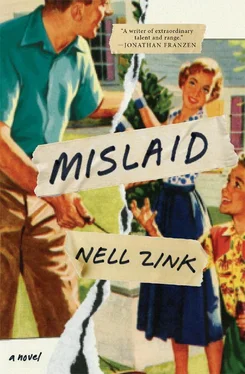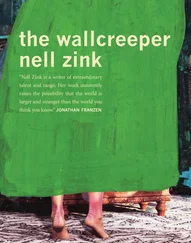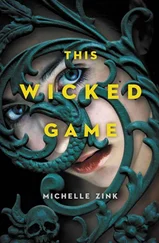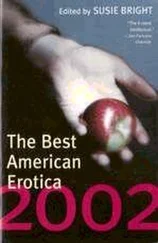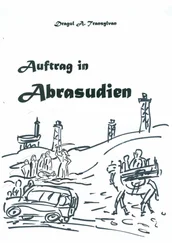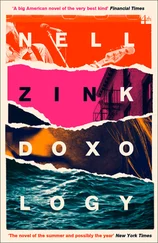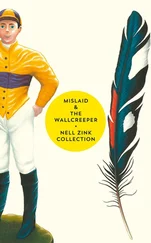He pulled his new blue Chevette in to the right of another blue Chevette, and thought, Quelle coincidence, a sister ship. As he clambered out to visit the restroom, he had to be careful to avoid colliding with the tray hung on the other Chevette’s passenger-side door. Heaped with heavily salted French fries, it was serving as a feeding trough to a stocky but fine-featured child with blond hair in cornrows. She lowered her mouth to the tip of the topmost French fry, guiding it inside with her tongue and a slurping sound like a robin eating a worm. The driver’s seat was empty.
Husky. Blond. Cornrows. A suspicion burst in on Lee. He stooped down and said, “Karen?”
“Who are you?” the girl asked.
“I might be your daddy,” he said.
“My daddy’s in Leavenworth for fragging his CO,” she replied.
That settled it for Lee. He recognized Peggy’s sense of humor. He jerked the door open, disregarding the greasy fries that tilted onto his clean khakis, and took her by the arm. “Come along,” he said. “We need to clear some things up.”
“Get off of me!” she said. She raised her voice and called out, “Marcella! Marcella!”
A shiny, pyramidal white woman with fine, limp hair — also in cornrows — came around the corner from the ladies’ room and said, “What are you doing? You get away from my granddaughter right now.”
Lee let go and backed away. He had seized the arm of a repulsive child on gut instinct without the least stirring of sensitivity or rationality — the child looked nothing like anyone he knew — feeling momentarily manly for what? For acting out like a drama queen? He didn’t even look around to check that he knew no one there. He simply closed his eyes, placing his right thumb and index finger on his eyelids, thankful it was Doumar’s.
“And you’d best pay for those fries,” the woman added. To the child she said, “Don’t eat food off the ground.”
“I’ll buy her new fries,” he said. He eased her door shut and reached for his wallet. “Watch your arm there. I’m so sorry. I mistook her for someone. Just sort of a confusing couple of years. Would five dollars be all right?” He extended the money toward the grandmother, inadvertently creating a suggestive still life: gold cuff link, gold watch, eel-skin wallet, five-dollar bill. The woman was nearsighted and lacked glasses. Lee’s face was fuzzy to her, but the still life was not. “I’m really very, very sorry,” he added. “I saw her hair and thought she might be my daughter.”
“Well, she might be,” the woman said. “She might well be.”
“I don’t think so,” Lee said.
“She’s a foster child. I just call her my granddaughter because my kids is growed up. You could be her father. What did you say your name was?”
“I got to go,” he said. “I simply must book. I got a meeting. Excuse me.”
“But you should keep in touch. Let me get you my card. I’m a hairdresser.”
As she went for her purse, he lowered himself into the driver’s seat and lurched into reverse. He stayed in reverse, backing all the way out to the main road, thankful he didn’t have a front license plate.
T here were new families in the county where Meg lived, drawn by the cheapness of two-acre lots with fishponds at their lowest points and septic tanks and wells going uphill in that order. Their motive for moving to the county had a name: “white flight.” And the more white people moved beyond the city limits, the more wanted to come. They had a snowball effect. Anybody with a little money to invest could make a good living building houses on spec.
You wouldn’t have noticed the newcomers just driving around, especially in summer when the leaves were on the trees. But behind the bushwhacked shoulders of the roads lay new home developments, sometimes as many as ten or twelve families, screened from view by thick buffers of vines and tree snags.
The new families founded a countywide Parent Teacher Association with a political agenda. They hoped to tear down all the public schools and build new ones. The current schools were in towns, convenient to stores where the kids could dash during breaks to grab such necessities as wax lips and fast-burning ten-cent cigarettes. They were overcrowded, because integration had been achieved by closing two-thirds of them. Most white children still went to private schools (“Christian academies”), although the voucher program that once paid their tuition had been phased out years before.
Thus many a newcomer discovered that his dream home was served by a decrepit public school that was 80 percent black. He was subsidizing it with his tax dollars. Yet he couldn’t get a voucher to pay for private school for his own kids. There was a lot of anger.
But there was also realism. The Supreme Court had invalidated one segregation scheme after another, no matter how well it worked. But that was partly because the movement made strategic errors. It called the voucher system “Massive Resistance to Integration” and school choice “Passive Resistance.” In public relations terms, it was a fiasco. When the Supreme Court went on the warpath, imposing busing that turned white people into refugees, they surrendered. The new way forward was to be subtle enough to fool even themselves.
The PTA wanted the school board to solicit money from the federal government to open new, centrally located, fully integrated public schools and bus all the kids to them. Out in the country busing was more a convenience than a burden. It even provided employment for drivers. The new schools would have air-conditioning and no asbestos. They would be large enough to allow children to be taught in separate classes according to their abilities.
No one had thought to criticize the school facilities before. When it came to quality of education, people always talked about class size and teaching. But to the newcomers, property developers, building contractors, and subcontractors of various trades, it was plain that quality education requires modern buildings. There was a good deal of overlap among the four groups, and Meg did not find their self-interested motives entirely sympathetic. But they made their opponents sound like unregenerate Klansmen.
At the first meeting she attended, all it took was for a speaker to favor modern athletic facilities, and the Pop Warner coach countered that a varsity football program, chronically swamped with aspiring players, would foster un-Christian rivalry for starting positions. A member of the school board opined that children should play sports in familiar surroundings where they speak a common language and learn at their own pace. A third speaker explained that some people’s natural talent would be complemented by other people’s ability to read playbooks, so that the all-county varsity with the deep bench would be victorious in the region and possibly even the state.
Eye contact and whispers raced around the room, and Meg got the feeling she was expected to say something. She was at once a newcomer and black. It was longer than anyone could remember since a black person had voluntarily moved into the county. Quite possibly it had never happened ever before. There were no other black people at the meeting.
She raised her hand and was called on. She said, “I look forward very much to seeing my daughter in a modern middle school with an adequately staffed and funded library, the sooner the better. You know that Andrew Carnegie founded the public libraries so that working people would have the opportunity to better themselves.”
It was a brilliant speech, simultaneously demanding a modern school, praising a robber baron, and exhorting her Negro brothers and sisters to self-reliance and work. After the meeting, the PTA founder made a point of embracing Meg. “An Oreo,” she told her friends later. She remarked that Mrs. Brown was as well-spoken as if she had grown up watching PBS. Her collar was clean (polo shirts and hair relaxers led a difficult coexistence in those days). She was divorced or a widow, but no one saw her turning tricks or even smiling much. No one had met her boyfriend, but it was always the same van. One saw her buying not steaks with food stamps, but canned goods with cash. And her daughter (Karen spent the meeting reading the book of Bible stories that was chained to the chaise longue in the ladies’ room) was, if not the most popular child among children, the idol of the suburban émigrés. The ghostlike, flaxen-haired black child was almost a matter of civic pride. They hoped she would stay in the county and marry a light-skinned, blue-eyed man to found one of those conversation-piece dynasties.
Читать дальше
Конец ознакомительного отрывка
Купить книгу
